- Home
- Roger Taylor
Dream Finder Page 43
Dream Finder Read online
Page 43
Then, addressing the unspoken conclusion which came immediately to the minds of his listeners, he said, ‘Arrange an honour guard about him tonight. He’s to be protected. I want no assassin’s blade entering this affair.’
Later, Ivaroth sat alone in the tent. He had dismissed the assembly shortly after the departure of Amhir, telling the chieftains to meet with him again the following day. ‘When we’ll discuss the detailed plans for our passage through the mountains and our assault on the southlands.’
They were both confused and subdued as they left, not least as Ivaroth’s final words had been to confirm his earlier order. ‘See that Amhir is well guarded this night. Put your finest men around him.’
Now, Ivaroth stared into the flame of a solitary lamp; the whites of his eyes turned as black as the moonless night outside in preparation for his entry into the dream world. The flame flickered occasionally, or bent slightly this way and that, following the promptings of some unseen force.
How different am I from you? Ivaroth thought. Moving here, moving there. Whose plaything am I?
He was not normally given to such introspection. He was a warrior. Destiny was for those who saw it and seized it; by word or by sword, by truth or by treachery, it mattered not. The gods, if gods there be, favoured the bold.
And yet . . .?
There were things that were hidden from him. Why should he be able to visit the dreams of others, to watch, to listen, to revel and, lately, to learn? Wrenyk had spoken of it, but he had never known of others. He rubbed the cheek that Wrenyk had spat on.
And how could it be that he could move into the strange worlds beyond the dreams? Real worlds, filled with real lands and real people . . . and real danger! Worlds where he had soon learned to carry a sharp sword and walk softly, and into which he never strayed too far.
And who was the blind man, with his mysterious and terrifying powers who had been drawn to him in the deserted wastes of the north?
More than ever this question taxed him now. Amhir’s words returned to him, ‘They have shown me the demon on your back.’ It was a long time since anyone had dared refer even obliquely to the strange hooded figure that had come out of exile with him to become like his shadow, frequently at his side and even present in some eerie way when he was absent.
Only Ivaroth knew of his strange, dangerous powers: that he could sometimes see into minds, and even speak into them without sound; that he could, as he had when Ivaroth had faced the gauntlet, fill others with great power and strength, making them invincible against all opposition; that he could make objects move, conjure fire from the air, and even make the earth shake; a deed which seemed to excite him beyond all reason.
And he was patently insane, muttering and gloating to himself in a soft, repellent whisper. A blind drivelling old man, with eyes as sickly milk-white as Ivaroth’s were now black; yet who could see into the spirits of men? A man who never seemed to eat or sleep, but who seemed to be kept alive by some strange power that he drew from who knew where? And a man who seemed to possess no fleshly appetites at all, not even for the occasional woman.
But he could lust, and lust more than any man could for a woman. Indeed, his every action seemed to radiate gross and unholy desire. He lusted to use his power. Though not so much in this world. It was in the worlds beyond that he wanted to use it, for there it was multiplied a hundredfold.
And he had known of these worlds from the first moment he had stared into Ivaroth’s eyes!
Mutual need had bound the two men together. ‘Take me through the dreams and into the worlds beyond, Ivaroth,’ he had said, at the same time filling Ivaroth’s body with burning fingers of pain. ‘And all you desire here shall be yours.’
At first, Ivaroth had taken him out of mortal fear of his strange powers, regarding the promise as a mere taunt. But his natural opportunism had soon shown him that the blind man’s craving to visit the worlds beyond and use his power there was almost uncontrollable, and as such was a weakness that could be used to control and manipulate him.
And as he began to get some measure of the blind man’s powers, his own ambitions began to grow with an equal lack of restraint. With such powers at his behest, nothing could stand in his way. This grotesque old man was indeed his destiny.
Thus one day, out in the cold, bleak wastes where they had met and were then subsisting, Ivaroth had refused to take him into the worlds beyond.
For a brief, but seemingly eternal moment, the blind man’s fury had been beyond belief and Ivaroth found himself the centre of pain that he could not have thought imaginable. But he was no coward and was truly willing to sacrifice his life for the ambitions he saw opening before him with the blind man’s powers at his command.
Whether he spoke the words, or merely formed the thoughts, he never knew, but even as he fell to his knees, he shouted defiantly into the pain. ‘I am Ivaroth Ungwyl, a son of the sons of warriors since time began. Death holds no fear for me, old fool. Slay me and you will lose all, for there are no others like me throughout all the tribes of the plains.’
The pain had stopped almost immediately but, roaring with hatred and fury, Ivaroth had lurched to his feet and struck the blind man a ferocious blow in the face that sent him sprawling on his back in the rough grass. He had scarcely struck the ground when Ivaroth’s sword was pressing into his throat.
‘Slay me and you lose all,’ the old man had said, cringing away from the purposeful point, fearfully.
Thus was their bargain struck.
Now, however, like the guttering flame before him, it was faltering again. The blind man had used his power surreptitiously to protect and strengthen Ivaroth in battle, making him the invincible leader of his own tribe, and subsequently of all the tribes as he pursued his relentless ambition to become Mareth Hai and form an army that could carry him through the mountains to seize the southlands. In return Ivaroth had taken the blind man into the worlds beyond to run amok for a while with his greater power.
But Ivaroth had always been deeply suspicious of the blind man. Often, like a cunning child, he would turn to Ivaroth and say, ‘Take me to the other place, the place beyond here, where the true power can be found.’ He used no threats, but he was endlessly persistent, his blind eyes watching Ivaroth carefully each time he spoke thus. Ivaroth, however, did not understand him. He would take him from world to world, but always there was the same peevish shaking of the head, and the plaintive squeezing of his arm. ‘This is not the place. Please look again, search inside yourself, it is there. I feel it.’
The tone sickened Ivaroth, but he learned silence. A little disgust was a small price for the benefits that the blind man’s cooperation brought him.
And in more conciliatory moments, he would say, quite sincerely, ‘I would find this place for you if I could.’
‘But you must search, you must, you must.’
Then had come the great discovery.
They had left one of the worlds beyond and, seemingly accidentally, entered the dream of one of the Bethlarii Handiran. It was a dream full of images of perpetual, ritualized warfare, of dying and being reborn to fight again. And over all hovered the image of some tedious deity, Ar-Hyrdyn. The blind man took little or no interest in dreams and, himself indifferent, Ivaroth had been about to withdraw from it when the blind man’s Dreamself had touched him with repellent glee.
And he had changed the dream! Twisted it somehow to his own fancy, and sent the dreamer hurtling towards a screaming wakefulness.
The blind man could use his power to change dreams!
Even now, Ivaroth still felt the emotion of that realization. To the blind man the torment of the Bethlarii had been no more than a passing and gratuitous spite; the slow, pointless crushing of a harmless insect. To Ivaroth, the manner in which it was done and the person to whom it was done, revealed his road to the south and the fulfilment of his wildest ambitions.
And their bargain had been made anew. Ivaroth promised that he would carry the blind
man further into the other worlds in search of this ‘other place’, while the blind man would bend and shape the dreams of the Bethlarii leaders to Ivaroth’s will.
It was work that the blind man grew to relish, for the Bethlarii were a people who worshipped pain and suffering and their minds were a rich storehouse for his cruel humour. Soon, one man actually died from sheer terror as a result of his handiwork. Ivaroth noted the incident well, and, as he learned more about the Bethlarii, used it on several carefully arranged occasions to remove opposition from their hierarchy and also to consolidate the power of those he could best manipulate by giving them the sight to prophesy such deaths.
So it had gone for many months. Ivaroth ruthlessly forging his federation and the blind man gleefully tormenting the Bethlarii through their dreams to prepare the way for Ivaroth’s coming. On occasions they took some of the Bethlarii into one of the worlds beyond where the blind man’s power could weave a magic quite different in its conviction from that within the dreams.
But now, a strange opposition had arisen. First, the strange old man who appeared from nowhere in one of the worlds, to challenge them and then flee from world to world, through the doorways that Ivaroth thought only he could find.
The lamp flame spluttered momentarily as the memory returned to him. His black eyes narrowed uncertainly. He and the blind man had nearly been killed in that battle the old man had led them to.
And then he had led them to the other one. The one who had arisen to protect him like some avenging demon. It had looked like a man, but it had walked towards Ivaroth’s sword and into the blind man’s insane storm apparently unafraid, calling and challenging them . . .
Ivaroth turned away from the memory of the savage rending power that had suddenly surged out of the howling darkness, like some great predatory animal. Terrible eyes . . . teeth . . .
And the blind man had stood there, his blank eyes gleaming with lust, and his arms extended as if to embrace the terror. Only by main force had Ivaroth torn them both back to this world.
Had it all been a trap? he thought. And if so, by whom? He did not dwell on the idea. He remembered only the blind man’s wild clamouring as they had crashed into the consciousness of this world.
‘He can take me there. He can take me there,’ he kept saying, alternately fawning and raging, one moment grovelling at Ivaroth’s feet, the next wildly seizing and pummelling him. Used to physical combat, and himself full of battle anger following the unexpected and terrifying assault in the world beyond, Ivaroth was unaffected by the blind man’s futile attacks and after a little while he ended the matter with a savage blow to the jaw.
Crouching down by the crumpled form, he was sorely tempted, for a moment, to end the cloying mutual reliance that bound them together, by crushing him underfoot. But calmer counsels prevailed and he waited for the blind man to stir.
When he did, Ivaroth held a knife against his throat.
‘The worlds beyond are dangerous, old man,’ he said. ‘When we are there, you obey me absolutely, or I shall abandon you there and return to slay your form here. Do you understand?’
‘He can take me there . . .’ The litany began again, but stopped abruptly as Ivaroth’s knife pressed harder.
He clutched at Ivaroth’s sleeve and Ivaroth felt a spasm of pain forming inside him. His eyes widened in fury and seizing the blind man’s wild matted hair he yanked his head back violently forcing the knife up under his chin.
‘No more,’ Ivaroth said through clenched teeth. ‘Or I’ll drive this blade through your brain before you can blink.’
The blind man became rigid, and the pain faded, but Ivaroth did not release him. Instead he drew his face closer. ‘That apparition you’re blubbering after wanted only our deaths. You can’t be so blind that you didn’t see that. I don’t know who or what it was, or why it came for us. I’ve never met the like of it before. Perhaps it’s always been there, perhaps your power drew it there . . . I don’t know. But I’ve no intention of returning to the worlds beyond for some time, so school yourself to that. We continue with the conquest of the south first. Then and then only, will I take you back to seek your “other place”. Do you understand me?’
The blind man had seemingly accepted this ultimatum and since then had fawned about Ivaroth more than ever, like some child seeking favour. But Ivaroth had made and slain too many enemies and allies in his time not to understand what was happening.
Just as in the blind man’s ability to change dreams, Ivaroth had seen his ambitions unfold before him, so, in that demon that had attacked them, the blind man had seen the spirit that could take him to this elusive ‘other place’ that he was eternally fretting for. Nothing now would quench his desire.
And, Ivaroth realized starkly as the flame in front of him finally flickered out, he would indeed fulfil his promise and one day carry the blind man into the worlds beyond again, to seek this ‘other place’, because he would need the blind man not only to conquer the south but to rule it, and to maintain his rule over the tribes.
The blind man was power, and power must be a close-watched ally not a captive, or it would bloom in secret and then turn on its captor.
Their mutual needs and desires bound Ivaroth and the blind man more completely than any lovers, and, in the end, only death would separate them.
* * * *
That night Ivaroth led the blind man into Amhir’s dreams. The shaman’s screams could be heard around the camp, but he could not be wakened.
In the end, he died.
None could look on his face.
Chapter 28
Ryllans seized Arwain to stop him falling from the saddle, at the same time searching through the milling crowd to see who had thrown the rock and whether more were likely to follow.
The rest of the platoon closed in around him rapidly, while the Whendreachi guards, drawing short staves, charged into the noisiest group of youths, scattering them briefly.
Like skirmishers, however, the youths merely dodged and weaved between the horses and the flailing weapons, and whenever opportunity presented itself, stood their ground to throw more stones and other missiles at the platoon and its escort.
It took Ryllans little time to realize that they were in considerable danger. Except for himself and Arwain, the platoon was unarmed, which effectively left them only with their horses as weapons. But the street was crowded not only with attacking youths but also many other people who were obviously innocent of any ill intent; indeed some had already been injured by the indiscriminately thrown stones. If he led the platoon out at the charge, many people would be badly hurt and, in any event, he was not sufficiently familiar with the city to know which would be the best way to flee.
A screaming woman, with blood running down her face, bumped into his horse to emphasize his dilemma.
He looked around again and, somewhat to his relief, saw that the Whendreachi guards seemed to be familiar with this type of problem. After their initial charge they were working in groups to pick out and deal with individual offenders. This tactic not only lessened the intensity of the assaults, but made the guards the new focus as the youths sought to rescue their compatriots.
‘This way!’ an officer shouted to Ryllans. He was pointing to a narrow alleyway nearby. Instinctively, Ryllans looked up at the rooftops for would-be ambushers, but the officer shouted again more insistently.
A figure surged from between two horses and grabbed at Ryllans in an attempt to unhorse him. For his pains he received a snakelike flick of the Mantynnai’s fingers across the end of his nose which sent him reeling backwards, howling in pain, but uninjured.
The next assailant was treated less charitably and caught the heel of Ryllans’ thrusting boot squarely on the jaw. He collapsed without a sound.
Others among the platoon were dealing similarly with such of the youths as reached them, and a degree of reluctance was beginning to show itself in their attackers. It was no victory however: the youths merely fell back and in
creased their stone-throwing.
‘Hurry. Follow me,’ the Whendreachi officer shouted urgently, riding into the alleyway. ‘My men will form a rearguard. We can reach the other street before they can get around.’
Still supporting Arwain, Ryllans rode after him, and the rest of the platoon followed. The alleyway was barely wide enough for two horses to ride side by side, and Ryllans had to lean forward awkwardly to support Arwain as they clattered along it. Shouts and screams followed after them.
The street they entered at the far end was quieter, and such people as were there seemed to offer no threat, though seeing the horsemen emerge from the alleyway at speed, several of them began to scurry away, obviously in anticipation of trouble. Ryllans handed Arwain to one of his comrades as he checked the rest of the platoon leaving the alleyway.
All arrived safely without serious injury, though there were several with cuts and bruises. He noted, however, that several of the Whendreachi guards were missing.
‘Your men?’ he said, catching the officer’s arm as he rode by.
‘They’ll keep them occupied for a while,’ the officer replied. ‘Don’t worry, they’re used to this kind of thing. And the Watchguards will be along soon. But we must keep moving.’ He nodded towards the bleeding Arwain. ‘We can’t stop to look at your man. Just keep him in his saddle and follow me.’
He made no further delay but galloped off immediately, beckoning Ryllans to follow.
As they swung to the left at the end of the street, a group of youths came running from the right.
This time, seeing his attackers clearly, and unhindered by passers-by, Ryllans led a group of the Mantynnai wide and scattered them without losing speed. The Whendreachi officer gave him a wave of thanks.
There were no further incidents as they galloped through the city, but it was apparent to Ryllans that the officer was avoiding the larger streets. Despite the urgency of their flight, he noted that many of the buildings they passed were similar in style to those in the Moras district, although they were clean and well maintained. He felt an incongruous twinge of regret that he had not been able to spend more time looking at the famous Whendreachi architecture.

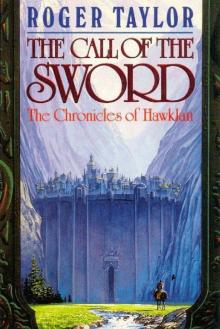 The call of the sword tcoh-1
The call of the sword tcoh-1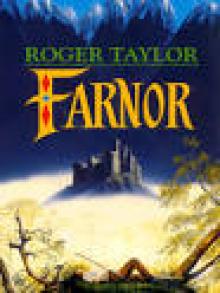 Farnor
Farnor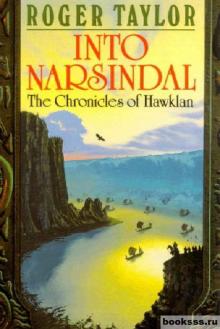 Into Narsindal
Into Narsindal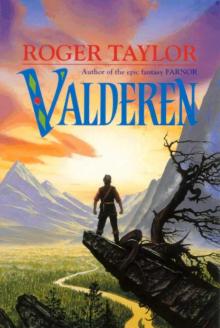 Valderen ft-2
Valderen ft-2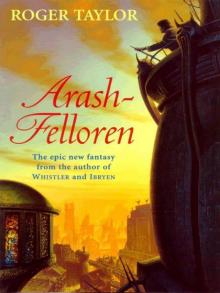 Arash-Felloren
Arash-Felloren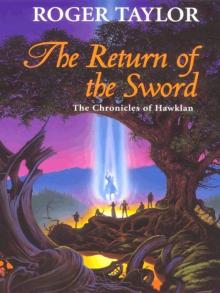 The Return of the Sword tcoh-5
The Return of the Sword tcoh-5![Ibryen [A sequel to the Chronicles of Hawklan] Read online](http://i1.bookreadfree.com/i1/03/26/ibryen_a_sequel_to_the_chronicles_of_hawklan_preview.jpg) Ibryen [A sequel to the Chronicles of Hawklan]
Ibryen [A sequel to the Chronicles of Hawklan]![The Call of the Sword [Book One of The Chronicles of Hawklan] Read online](http://i1.bookreadfree.com/i/03/24/the_call_of_the_sword_book_one_of_the_chronicles_of_hawklan_preview.jpg) The Call of the Sword [Book One of The Chronicles of Hawklan]
The Call of the Sword [Book One of The Chronicles of Hawklan]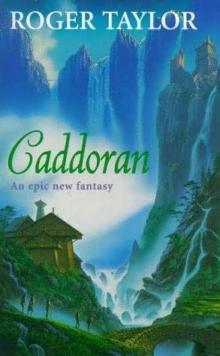 Caddoran
Caddoran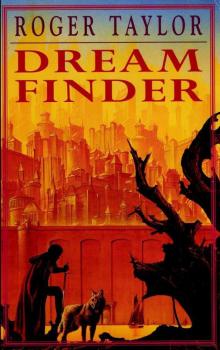 Dream Finder
Dream Finder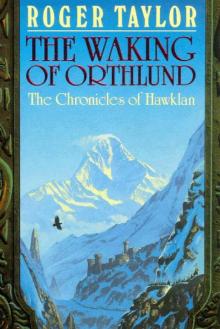 The Waking of Orthlund
The Waking of Orthlund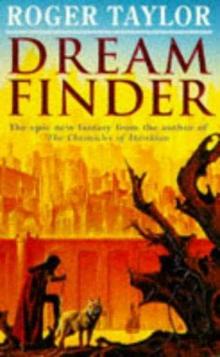 Dream Finder cohs-1
Dream Finder cohs-1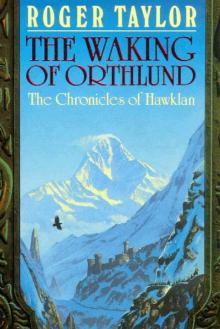 The waking of Orthlund tcoh-3
The waking of Orthlund tcoh-3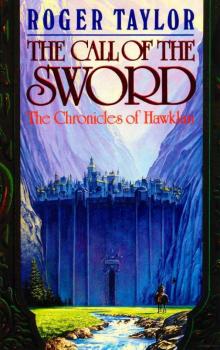 The Call of the Sword
The Call of the Sword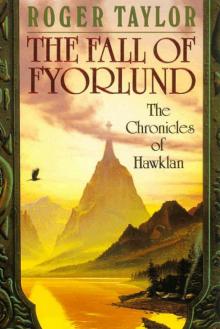 The fall of Fyorlund tcoh-2
The fall of Fyorlund tcoh-2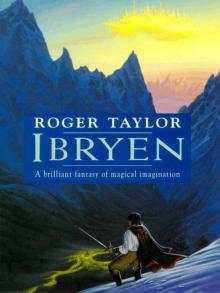 Ibryen
Ibryen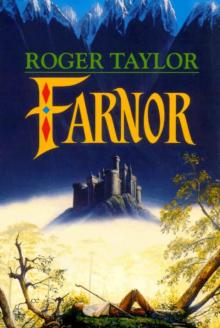 Farnor ft-1
Farnor ft-1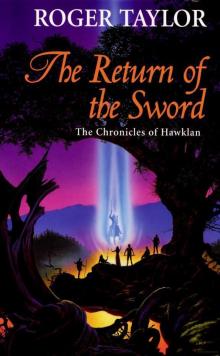 The Return of the Sword
The Return of the Sword![Into Narsindal [Book Four of The Chronicles of Hawklan] Read online](http://i1.bookreadfree.com/i2/04/06/into_narsindal_book_four_of_the_chronicles_of_hawklan_preview.jpg) Into Narsindal [Book Four of The Chronicles of Hawklan]
Into Narsindal [Book Four of The Chronicles of Hawklan]![Valderen [The Second Part of Farnor's Tale] Read online](http://i1.bookreadfree.com/i2/04/05/valderen_the_second_part_of_farnors_tale_preview.jpg) Valderen [The Second Part of Farnor's Tale]
Valderen [The Second Part of Farnor's Tale]![The Fall of Fyorlund [Book Two of The Chronicles of Hawklan] Read online](http://i1.bookreadfree.com/i2/04/08/the_fall_of_fyorlund_book_two_of_the_chronicles_of_hawklan_preview.jpg) The Fall of Fyorlund [Book Two of The Chronicles of Hawklan]
The Fall of Fyorlund [Book Two of The Chronicles of Hawklan]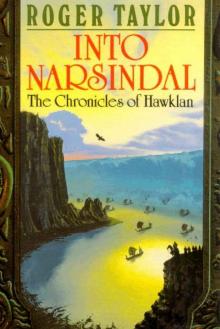 Into Narsindal tcoh-4
Into Narsindal tcoh-4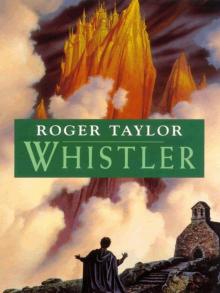 Whistler
Whistler![Whistler [A sequel to The Chronicles of Hawklan] Read online](http://i1.bookreadfree.com/i2/04/12/whistler_a_sequel_to_the_chronicles_of_hawklan_preview.jpg) Whistler [A sequel to The Chronicles of Hawklan]
Whistler [A sequel to The Chronicles of Hawklan]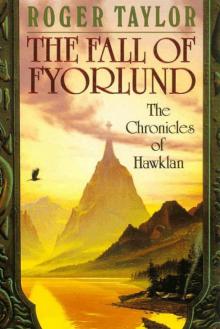 The Fall of Fyorlund
The Fall of Fyorlund![The Waking of Orthlund [Book Three of The Chronicles of Hawklan] Read online](http://i1.bookreadfree.com/i2/04/11/the_waking_of_orthlund_book_three_of_the_chronicles_of_hawklan_preview.jpg) The Waking of Orthlund [Book Three of The Chronicles of Hawklan]
The Waking of Orthlund [Book Three of The Chronicles of Hawklan]